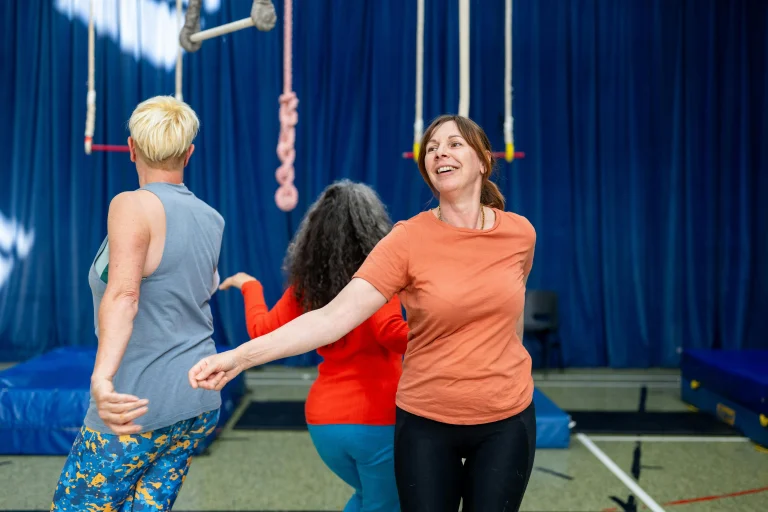Yoga and sleep go hand in hand. Whether it’s a gentle stretch before bed or a sunrise flow to reset your rhythm, the timing of your practice can shape how well you rest at night. But which is better for sleep morning or evening yoga?
The answer isn’t one-size-fits-all. Both have benefits, and depending on your schedule, stress levels, and sleep habits, one might suit you better than the other. Let’s break it down.
Morning Yoga: Wake Up Your Body, Regulate Your Rhythm
Starting your day with yoga can do more than loosen stiff muscles it helps set your internal clock. Morning movement, especially when paired with natural light, tells your body it’s time to wake up. That early activation can help regulate your sleep-wake cycle, making it easier to wind down later.
Why morning yoga helps:
- Boosts energy and mental clarity
- Lowers stress hormones like cortisol
- Encourages a consistent wake-up time
- Supports better sleep onset at night
It’s not about doing a full workout just a few energising poses can make a difference. Try:
By signing up, you agree to receive emails from RealFit Wellness. You can unsubscribe anytime. See our Privacy Policy.
Your Weekly Wellness Boost
- Sun Salutations
- Cat-Cow stretches
- Warrior I and II
- Standing Forward Fold
These poses gently wake up the body, improve circulation, and set a calm, focused tone for the day.
Evening Yoga: Wind Down and Let Go
Evening yoga is all about slowing down. After a busy day, it helps release tension, quiet the mind, and ease the body into rest mode. If you struggle with racing thoughts or restless legs at bedtime, this kind of practice can be a game changer.
Why evening yoga works:
- Activates the parasympathetic nervous system (your rest-and-digest mode)
- Lowers heart rate and blood pressure
- Relieves muscle tightness and mental fatigue
- Helps you fall asleep faster and sleep more deeply
Keep it gentle and slow. Think:
- Legs-Up-the-Wall
- Reclined Twist
- Child’s Pose
- Seated Forward Fold
- Savasana
These poses help signal to your body that it’s safe to relax and let go.
Morning vs Evening: What’s the Real Difference?
Both morning and evening yoga support better sleep but they do it in different ways. Morning yoga sets the rhythm. Evening yoga softens the edges.
Here’s a quick comparison:
| Benefit | Morning Yoga | Evening Yoga |
|---|---|---|
| Sleep impact | Regulates your body clock | Helps you unwind and fall asleep |
| Energy levels | Boosts alertness and focus | Calms the nervous system |
| Stress relief | Lowers cortisol early | Releases tension before bed |
| Best for | Consistency, mood, daytime stress | Sleep quality, anxiety, nighttime restlessness |
If your sleep struggles are more about falling asleep, evening yoga might be your best bet. If you’re looking to improve overall sleep rhythm and reduce daytime stress, morning yoga could be the way to go.
Tips to Make Your Yoga Practice Sleep Friendly
No matter when you practice, a few tweaks can help you get the most sleep-supporting benefits from your routine.
Try this:
- Keep evening sessions slow and gentle avoid intense flows or inversions
- Use calming breathwork like alternate nostril breathing or deep belly breathing
- Practice regularly, even if it’s just 10 minutes
- Create a peaceful space with soft lighting and minimal distractions
- Avoid screens right after your practice to stay in a relaxed state
Pairing yoga with good sleep hygiene like limiting caffeine and sticking to a consistent bedtime can make your practice even more effective.
When Should You Practice?
There’s no perfect time for everyone. Some people thrive with a morning stretch, others need that evening release. The best way to find out? Try both.
Here’s a simple experiment:
- Practice yoga in the morning for one week
- Switch to evening sessions the next
- Notice how your sleep, mood, and energy shift
- Stick with what feels best or mix it up
The goal isn’t perfection it’s finding a rhythm that supports your body and your sleep.






